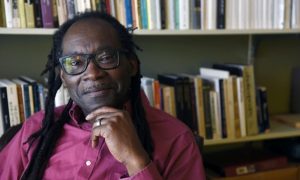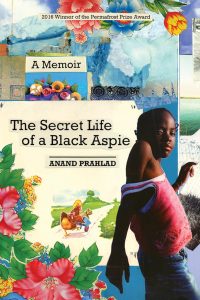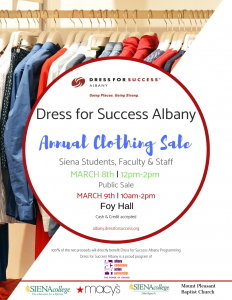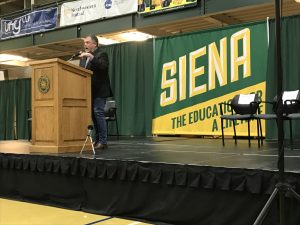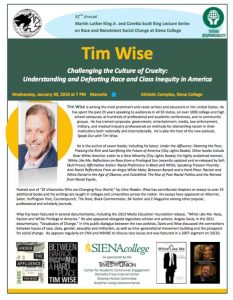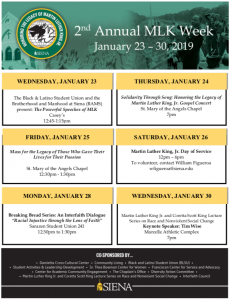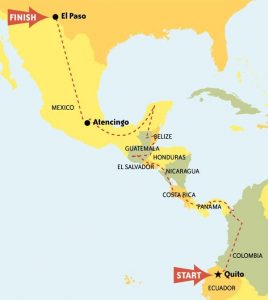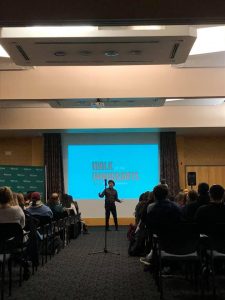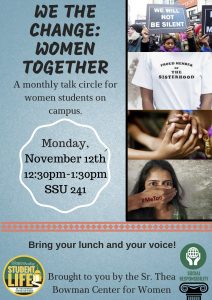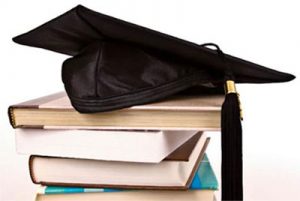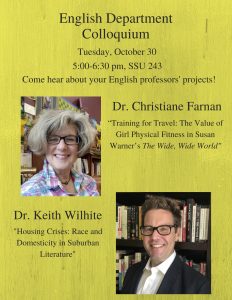From Monday March 18th to Friday March 22nd, 2019, Siena celebrated its sixth annual Hip-Hop Week, a week-long celebration of the social and cultural impacts of the music genre. The week is coordinated by the Damietta Cross-Cultural Center and Dr. Todd Snyder, associate professor of English, as well as the professor of a popular, upper-level writing class, “Rhetoric(s) of Hip-Hop.”
Hip-Hop Week kicked off on Monday with a visit from hip-hop pioneer, Biz Markie. Born Marcel Theo Hall but better known by his stage name, Markie has been working in the music industry for over thirty years and is well-known for his unique musical style, beatboxing skills, and DJ performances, as well as a brief dabbling in an acting career. When he took the stage in the Sarazen Student Union on Monday, he performed his hit single from 1989, “Just a Friend” and the audience sang loudly along to the familiar song. 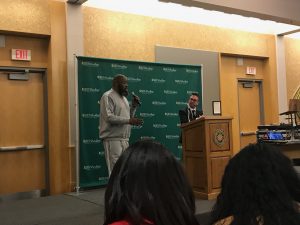
In Dr. Snyder’s introduction, he proudly shared that Siena is “the only college in the United States of America that has an annual Hip-Hop Week.” The event has become a staple not only in the Siena community but in the larger Capital Region, as Markie’s visit drew an impressive crowd of students, faculty, and community members. Dr. Snyder then lead a Q&A with Markie, asking about his initial interests in the hip-hop genre, as well as some of his personal influences with music. Markie was an engaging speaker, and his entertainer personality shown through in his responses; he would beatbox throughout his answers and crack jokes with the audience.
The events of the week also featured Hip-Hop Karaoke on Wednesday night, where students could win prizes by performing and dressing as their favorite artists, as well as a Hip-Hop Trivia Night on Thursday. This Friday March 22nd, Hip-Hop Week will conclude with “Expozé: Evolution of Hip-Hop” at 7:30pm, presented by Siena College’s Black & Latino Student Union. The event is a talent showcase that will feature a number of performances by Siena’s dance clubs. Tickets cost $3 for Siena students & faculty and $5 for outside guests, and all proceeds will be donated to the Coalition for Homeless Youth. 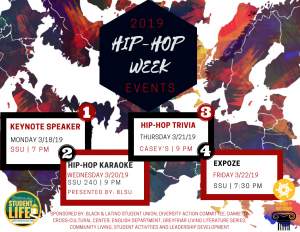
Hip-Hop Week is sponsored by the Black & Latino Student Union, the Diversity Action Committee, Damietta-Cross Cultural Center, the English Department, Greyfriar Living Literature Series, Community Living, and Student Activities & Leadership Development.
If you’re interested in reading more about Markie’s visit, I covered his performance and keynote lecture in the 3/29 issue of The Promethean, which can be read here.
